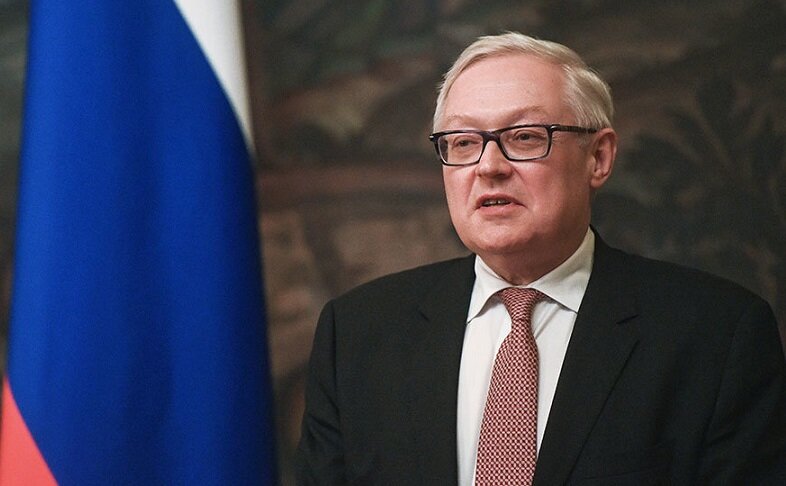Russia ready to start military-technical cooperation with Iran: diplomat

TEHRAN – Russia is not afraid of U.S. restrictions on Iran and will move forward with military cooperation with the country, according to Sergey Ryabkov, the deputy foreign minister of Russia.
“Russia is not afraid of U.S. sanctions because it is accustomed to them,” the Russian TASS news agency quoted Ryabkov as saying on Sunday.
“Russia is developing multi-aspect cooperation with Iran and cooperation in the military-technical sphere will proceed depending on needs of the parties and mutual readiness to [move forward with] such cooperation in a calm fashion,” the Russian diplomat added.
Ryabkov’s comments came as Iran formally announced the expiration of a UN arms embargo on Sunday in accordance with the provisions of a 2015 nuclear deal between Iran and world powers, which is officially known as the Joint Comprehensive Plan of Action (JCPOA).
“As of today, all restrictions on the transfer of arms, related activities and financial services to and from the Islamic Republic of Iran, and all prohibitions regarding the entry into or transit through territories of the United Nations Member States previously imposed on a number of Iranian citizens and military officials, are all automatically terminated,” the Iranian Foreign Ministry said in a statement on Sunday.
The statement also said the termination of the UN arms embargo is a “momentous day for the international community, which in defiance of the U.S. regime’s efforts, has protected UN Security Council Resolution 2231” and the JCPOA.
The arms embargo was a major point of contention between Iran and the U.S. over the past year. The U.S. made tremendous efforts to extend the UN arms embargo but it failed to do so because the international community firmly opposed the U.S. push to extend the international restrictions on Iran. To this end, the U.S. submitted a draft resolution calling for the extension of the arms embargo but the resolution was rejected by most members of the UN Security Council. Then, the U.S. resorted to triggering a highly controversial mechanism within the JCPOA and UNSCR 2231. The mechanism, known as the snapback process, stipulates that a “JCPOA participant state” can trigger the return of all UN sanctions on Iran in case Iran failed to uphold its obligations under the nuclear deal.
The U.S. triggered the snapback process in August and ultimately announced the return of all UN sanctions on Iran on September 19, a move that was widely rejected by the remaining parties to the JCPOA as well as almost all members of the Security Council. They said the U.S had no legal authority to restore the international sanctions on Iran because it was no longer considered as a “JCPOA participant state” after it formally announced its withdrawal from the JCPOA on May 8, 2018.
Despite U.S. efforts, the remaining parties to the JCPOA including Washington European allies said the reimposition by the U.S. of the UN sanctions on Iran was incapable of having legal effect and that the UN arms embargo would be expired on October 18. Russia said that there were no restrictions on Iran right from the start.
“As you know, the United Nations Security Council did not impose a weapons embargo on Iran in 2015. Tehran voluntarily undertook a number of restrictions. It was done in the interests of the soonest successful outcome of the talks on the Joint Comprehensive Plan of Action to settle the situation around the Iranian nuclear program,” Russian Foreign Ministry spokeswoman Maria Zakharova said on Thursday.
She added, “And all the parties knew from the very beginning that these restrictions had nothing to do with the settlement of the situation around the Iranian nuclear program. Moreover, the term of the corresponding provisions has expired.”
Zakharova reiterated the position of Russian Foreign Minister Sergei Lavrov, who recently said there was “no such thing as an arms embargo against Iran.”
“There is no such thing as an arms embargo against Iran. The Security Council, when it was adopting the comprehensive Resolution 2231, which endorsed [the] Joint Comprehensive Plan of Action, which settled the nuclear issue for Iran, and this was adopted by consensus under the chapter 7 of the United Nations’ charter,” Lavrov said in an interview with Alarabiya. “The Security Council in that resolution said that the supply of arms to Iran and from Iran would be subject to consideration by the Security Council and that on the 18th of October, 2020 this regime of sales to Iran would stop. There is no embargo and there would be no limitations whatsoever after the expiration of this timeframe established by the Security Council.”
Now that the UN arms embargo has been expired, Iran and Russia stand ready to strengthen their defense cooperation.
Kazem Jalali, Iran’s ambassador to Russia, said on Saturday that the two countries have devised a plan to boost their military cooperation.
SM/PA
Leave a Comment